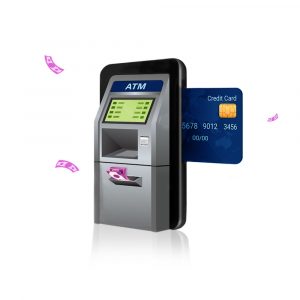Credit Card Cash withdrawals can be a seamless way of availing mini cash loans with no paperwork. Withdrawing hard cash via credit cards might seem like a decent idea, especially when facing a liquidity shortage. This system’s ease of use will likely attract customers into a relentless cycle of Credit Card ATM withdrawals.
When you withdraw cash using a credit card, it might come with an unforeseen price to pay. From endless hidden charges to hiked-up interest rates, the system makes one question it’s worth before swiping card after card. Read this article to know the Dos and Don’ts of using the cash advances of your credit card.
Cash advance limit v/s Credit limit
People often confuse the credit limit with the cash advance limit. The credit limit is the maximum amount of money that can be spent by the cardholder using the credit card. On the other hand, the cash advance limit is the maximum limit to withdraw cash using a credit card. The cash advance feature is not necessarily available on every credit card, and the advance limit varies from bank to bank. However, Cash Advance Limit is usually 20%-40% of the total Credit Limit.

Charges and fees imposed when you withdraw cash using a credit card:
1. Cash advance fee
Every cash withdrawal done via a credit card attracts a cash advance fee. It is usually levied at 2.5% to 3% of the withdrawn amount, subject to a minimum fee of Rs 250 to Rs 500.
2. Finance charges
Most banks levy a finance charge between 2.5% to 3.5% of the withdrawn amount. This charge is applicable from the date of withdrawal till the date of payment.
3. Withdrawal charges
Banks offer up to 5 free ATM withdrawals. Exceeding the limit attracts a withdrawal fee of Rs 17 per transaction. Some banks also charge a separate fee for withdrawing cash from ATMs of other banks. Paytm bank HDFC credit card offers zero withdrawal charges for amount withdrawn upto Rs 10,000.
4. Interest rate
Unlike non-cash transactions, cash advances do not have any interest-free period. The credit card cash advances will accrue interest rates from the date of withdrawal till the date of repayment. The interest continues to pile up until the complete repayment of the outstanding balance. Usually, banks charge an interest rate between 2.5% to 3.5%.
5. Overlimit fee
If you breach the cash advance limit, you might be charged an over-limit fee of 2.5% or Rs 500, whichever is higher.
6. Late payment fee
In case of a delay in payment, banks charge a late payment fee on the outstanding balance. This fee ranges anywhere between 15% to 30%.
7. Reward points decline
Credit card companies incentivise you with cash back and reward points on credit transactions. However, if the transaction involves a cash withdrawal, you might be refrained from getting the reward points.
Will the cash advances impact the credit score
Cash advances are not reported separately to credit agencies. The entire statement of outstanding, due, and non-payment will be reflected in one statement. Hence, your credit card cash withdrawals will not affect your credit score.
However, your credit score will be badly affected if you fail to repay the withdrawn amount along with the charges. Hence, remember to make timely payments without keeping the outstanding balance beyond the due date.








